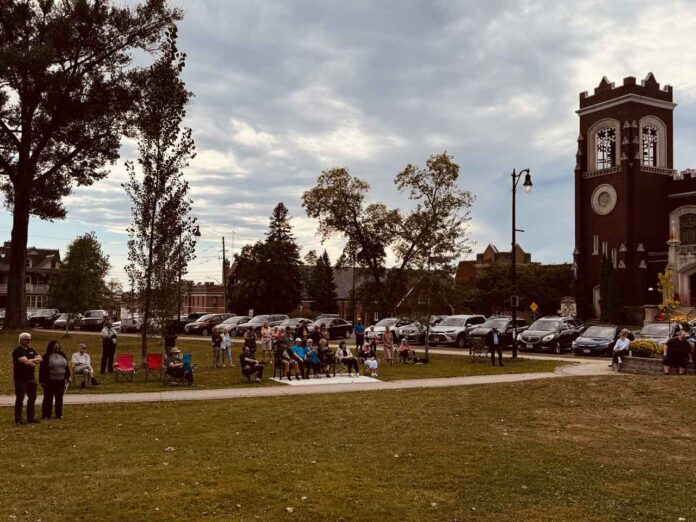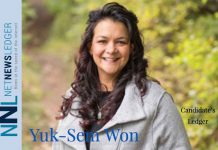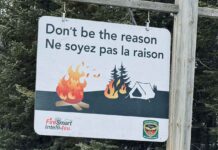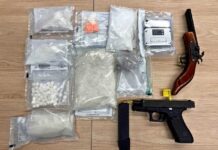World Peace Day Speech: Editor’s Note: On World Peace Day I was asked by the Rotary to be one of their speakers, to present ideas on how we can bring and make Thunder Bay more peaceful. Here is the text of the remarks.
Ladies and gentlemen, members of our community, and distinguished guests,
Today, as we gather on World Peace Day, we celebrate not just the absence of conflict but the presence of justice, equity, and unity in our communities.
Today I speak as a journalist, and as a grandfather to Indigenous children.
NetNewsLedger was founded in 2007. Over the years NetNewsLedger has had millions of readers, and continues as an independent media outlet.
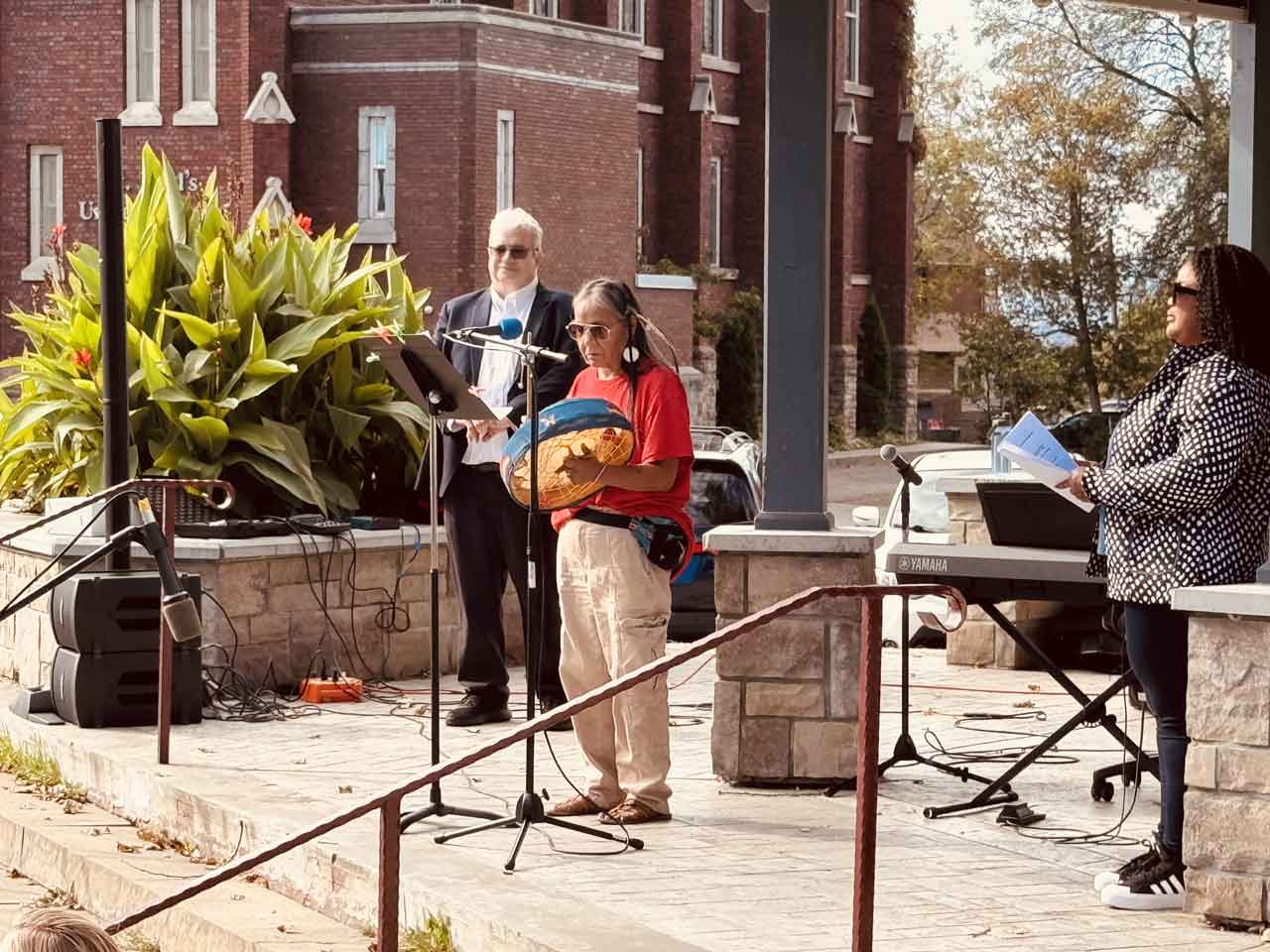
Thunder Bay is a city of immense natural beauty, rich history, and a vibrant cultural mosaic.
But like any community, we face challenges. Among these are our relations with Indigenous peoples, homelessness, racism, addiction, and community-police relations.
If we are truly committed to peace, we must begin by addressing these issues head-on. We as a city need to be open to hearing voices that take us collectively OUT of our Comfort Zone.
Let me speak briefly on five areas where we can take meaningful action.
First, Indigenous Relations.
Thunder Bay is on the traditional territory of the Anishinaabe people, and it’s essential that we honor this relationship.
We need to move beyond words and work towards true reconciliation.
This means supporting initiatives like land-based education programs, ensuring Indigenous voice, including grassroots Indigenous voices are heard in every level of decision-making, and investing in culturally appropriate services for not only Indigenous youth and families but all families in Thunder Bay.
We can foster stronger and more meaningful partnerships between our city, Indigenous leaders, Grassroots people and educational institutions like Lakehead University and Confederation College, to create sustainable opportunities and shared prosperity.
One really good start would be making an Indigenous presence at the Friendship Garden.
Second, Combating Homelessness.
Homelessness is a visible and pressing issue in our city. It’s not enough to simply provide shelter; we need to address the root causes—affordable housing, mental health, and addiction.
Truthfully while providing tents, food and supplies is nice, it is doing far less than is needed.
Thunder Bay can take bold steps by expanding access to transitional housing, increasing funding for mental health support, and creating more affordable housing units.
But beyond infrastructure, we must invest in compassion—outreach programs that connect people experiencing homelessness with the services and support they need, with dignity and care.
Third, Reducing Racism.
Racism—both overt and systemic—remains a serious issue in Thunder Bay. Our city’s diversity should be a source of strength, not division. To combat racism, we must educate and raise awareness, especially among our youth.
Anti-racism education should be embedded in our schools and community programs. We must celebrate our differences while promoting a shared sense of belonging.
Stronger penalties for hate crimes and discriminatory practices are needed, but we must also work to foster dialogue between different cultural groups, creating spaces where we can learn from each other. Friendship Garden has not Indigenous inclusion.
Fourth, Addressing Addiction.
Addiction is a crisis that affects every corner of our city. It devastates families, fuels crime, and leaves many in despair.
This week Ontario Minister Tibolo announced funding for 15 treatment beds. It’s a start but it is a tiny single step in what is a marathon of overcoming addiction.
What has really been created are empires of commerce, the methadone clinics that trap people in what is a lifetime of treatment and leaves them trapped. The doctors often up the doses and . It has also created huge demand for illegal drugs. A Percocet pill that is under a dollar at the pharmacy sells for $15 in Thunder Bay and upwards of $50 in some of the northern fly-in communities.
Thunder Bay must expand access to addiction treatment centers, especially those that are community-based and culturally informed.
Let’s also invest in preventive measures, offering education and support to those most at risk before addiction takes hold.
The best way to stop addiction in its tracks is to prevent it from starting.
The City of Thunder Bay once put youth centres as a primary goal. Where are they?
We have a new $1.2 million dollar jail under construction.
Punishment instead of prevention? Not a real solution.
Finally, Improving Community-Police Relations.
The relationship between our police and community, especially Indigenous and marginalized groups, must be rebuilt on trust and mutual respect.
Thunder Bay can lead by increasing transparency and accountability in law enforcement. Community policing, where officers work directly within neighborhoods, can help build trust.
Thunder Bay has created a mountain bike patrol. That is a positive. Walking patrols in the downtowns and in the intercity would be a needed addition as well.
We must go further by ensuring that police are trained in cultural sensitivity, de-escalation techniques, and mental health crisis intervention.
Police today are also social workers as a result of some of the realities of today. Getting police on the frontlines engaging with people face to face brings a pathway to solutions.
Oversight and community involvement in policing strategies are essential for building trust and ensuring fair treatment for all citizens.
These issues may seem daunting, but together, as a community, we can make meaningful change.
We can build a Thunder Bay where peace is more than a dream—where it is felt in every home, every street, and every heart.
It will take all of us—residents, leaders, and institutions—working in solidarity and with a shared vision of progress. We are not there yet, but as said, a journey of a 1000 miles or 1600 kilometres begins with a single step.
Let today, World Peace Day, be a reminder that peace isn’t just the absence of conflict. It is the presence of justice, compassion, and unity.
Together, let us start that journey.
Meegwetch, Thank-you. Merci.
James Murray
Rotarian Brian Walmark opened the event with the Rotary Land Acknowledgement.
If your organization or group is hosting an event and needs a land acknowledgement opening, perhaps borrowing from this amazing one is something to seriously consider:

